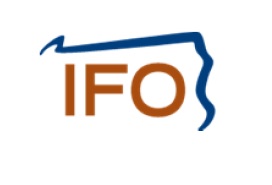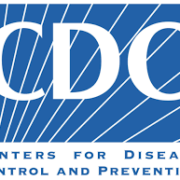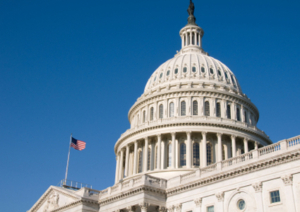PA Health Policy Update for the Week of July 12-16
The following is an update of selected state health policy developments in Pennsylvania for the week of July 12-16, 2021. (Some of the language used below is taken directly from state documents.)
 General Assembly
General Assembly
The House Democratic Policy Committee’s Subcommittee on Progressive Policies for Working Families held an informational hearing this week on “Pricing Out Pennsylvanians: How to Drive Down Drug Prices.” Various stakeholders, including PhRMA, the National Academy for State Health Policy, patient advocates, and pharmacists, spoke to the committee. Find their testimony here.
On Wednesday, July 21 at 10:30 a.m. the Senate Health & Human Services Committee and the Senate Communications & Technology Committee will hold a joint public hearing examining the Department of Health’s COVID-19 contact tracing emergency procurement. Go here to stream the hearing.
 Department of Human Services
Department of Human Services
- DHS has published a notice in the Pennsylvania Bulletin announcing its intention to discontinue Medical Assistance stability payments beginning with FY 2022 and to revise the payment reconciliation process to account for the discontinuation of these payments. Find the notice here.
- DHS has updated its Remittance Advice (RA) calendar to add August dates.
- DHS has published a notice in the Pennsylvania Bulletin announcing revisions of the Medical Assistance program fee schedule that take effect for dates of services on and after December 21, 2020. It also has added procedure code and modifier combinations to the fee schedule. Find the notice here.
- DHS has published a notice in the Pennsylvania Bulletin addressing its FY 2022 Nursing Facility Assessment Program announcing the proposed assessment amount, the proposed assessment methodology, and the estimated aggregate impact on nursing facilities that will be subject to the assessment. Find the notice here.
- DHS has announced that all of its county assistance offices resumed serving clients in person on July 12, 2021. The services that have been available to clients online during the COVID-19 emergency will remain available online through DHS’s Compass web site. Learn more from this DHS announcement.
COVID-19: By the Numbers
- The Department of Health announced that it had overcounted the number of Pennsylvanians who have received their first of two COVID-19 injections but undercounted those who are now completely vaccinated. The announcement was included in this department news release and explained in greater detail in this Lancaster Online article.
- According to the state’s revised figures, 61.4 percent of Pennsylvanians 18 years of age and older are now fully vaccinated.
- 5.6 million Pennsylvanians have been fully vaccinated against COVID-19, according to the state’s COVID-19 dashboard, but only 105,000 completed the full vaccination regimen in the past week; another 813,000 Philadelphians are now fully vaccinated but only 11,000 reached that status in the past week.
- The daily number of new COVID-19 cases rose slightly over the past week, with the total from Tuesday through Friday the highest four-day figure in more than a month.
- The number of Pennsylvanians hospitalized with COVID-19 and on ventilators and in hospital ICUs declined slightly in the past week.
- For the week from July 2 through July 8 the state’s overall COVID-19 test positivity rate was 1.2 percent, up from 1.1 percent last week and the first increase the state has experienced in two months.
 Pennsylvania Health Care Cost Containment Council (PHC4)
Pennsylvania Health Care Cost Containment Council (PHC4)
As directed by Act 15 of 2020, PHC4 has issued a report with data on the effect of the COVID-19 disaster emergency on Pennsylvania hospitals and health care facilities. According to the report, Pennsylvania hospitals and health systems reported $1.4 billion in COVID-19 related expenses and revenue losses for the period October 2020-March 2021. These expenses and revenue losses, according to PHC4, were attributable to COVID-19 and used to prevent, prepare for, and respond to the pandemic. Total COVID-19-related expenses and lost revenue reported by Pennsylvania hospitals and health systems through March 2021 (January 2020-March 2021) were $6.5 billion. Learn more from the PHC4’s “COVID-19 Disaster Emergency Report.”
Around the State
- With no public health department of its own, Delaware County enlisted Chester County’s public health department to lead its pandemic response. Now, Delaware County is addressing this shortcoming in its local governance: its new board of health held its first meeting last month and hiring for the county’s new health department will begin in the fall. The Philadelphia Inquirer tells the story.
- With a new goal of cutting HIV diagnoses 75 percent over the next five years, Philadelphia public health officials are trying a new HIV testing strategy: focusing testing on high-risk groups rather than focusing on sheer numbers of tests administered. The Philadelphia Inquirer explains the why and the how.
- The Lycoming County commissioners have awarded River Valley Health & Dental, a federally qualified health center, $25,000 in Pennsylvania Emergency Management Agency money to educate the public about COVID-19 and vaccinations. The Williamsport Sun-Gazette provides the details.
- The office of Delaware County’s medical examiner is getting a makeover: a new medical examiner, a new or renovated facility, new policies and procedures, and more, according to the Delaware County Times.
Stakeholder Events
- Medical Assistance Advisory Committee
July 22 at 10:00 am
To register, go here.
- Special Pharmaceutical Benefits Program
July 29, 2021 at 10:00
This is a telephone meeting.
Join on your computer or mobile app
Click here to join the meeting
Or call in (audio only)
+1 412-648-8888,,785376728# United States, Pittsburgh
(866) 588-4789,,785376728# United States (Toll-free)
Phone Conference ID: 785 376 728#
Stakeholder Meeting Materials
Materials from the June 24 meeting of the Office of Medical Assistance Programs’ Medical Assistance Advisory Committee (MAAC):
 Last week the Governor’s Budget Office released a
Last week the Governor’s Budget Office released a  Department of Health – by the numbers
Department of Health – by the numbers Department of State
Department of State In its letter, SNAP asked Congress for:
In its letter, SNAP asked Congress for: Independent Fiscal Office
Independent Fiscal Office Reminder: Applications are currently open for Phase 2 general distribution funding for Medicaid, Medicaid managed care, the Children’s Health Insurance Program (CHIP), dental providers, certain Medicare providers, and assisted living facilities. All groups have until September 13, 2020 to submit their tax identification number for validation and apply for funding from the phase 2 general distribution. Go
Reminder: Applications are currently open for Phase 2 general distribution funding for Medicaid, Medicaid managed care, the Children’s Health Insurance Program (CHIP), dental providers, certain Medicare providers, and assisted living facilities. All groups have until September 13, 2020 to submit their tax identification number for validation and apply for funding from the phase 2 general distribution. Go  CMS has updated the article “Quarterly Update for Clinical Laboratory Fee Schedule and Laboratory Services Subject to Reasonable Charge Payment” in its online publication MLN Matters to reflect
CMS has updated the article “Quarterly Update for Clinical Laboratory Fee Schedule and Laboratory Services Subject to Reasonable Charge Payment” in its online publication MLN Matters to reflect  In three documents the CDC has advised states to be ready to begin distributing COVID-19 vaccines as early as late October or early November.
In three documents the CDC has advised states to be ready to begin distributing COVID-19 vaccines as early as late October or early November.
 Authorization for delaying the cut in allotments to the states, which would have resulted in reduced Medicaid DSH payments for many hospitals – including private safety-net hospitals – would expire on May 22. Congress is expected to address Medicaid DSH, along with surprise medical bills, the price of prescription drugs, and other health care matters, before that time.
Authorization for delaying the cut in allotments to the states, which would have resulted in reduced Medicaid DSH payments for many hospitals – including private safety-net hospitals – would expire on May 22. Congress is expected to address Medicaid DSH, along with surprise medical bills, the price of prescription drugs, and other health care matters, before that time. The Medicaid and CHIP Payment and Access Commission kicked off its December meeting with highlights from its forthcoming issue of MACStats: Medicaid and CHIP Data Book, due out December 18, 2019. MACStats brings together statistics on Medicaid and State Children’s Health Insurance Program (CHIP) enrollment and spending, federal matching rates, eligibility levels, and access to care measures, which come from multiple sources.
The Medicaid and CHIP Payment and Access Commission kicked off its December meeting with highlights from its forthcoming issue of MACStats: Medicaid and CHIP Data Book, due out December 18, 2019. MACStats brings together statistics on Medicaid and State Children’s Health Insurance Program (CHIP) enrollment and spending, federal matching rates, eligibility levels, and access to care measures, which come from multiple sources. The Prescription Drug Pricing Reduction Act includes a provision that would eliminate two years of Affordable Care Act-mandated cuts in the allocation of federal money to the states for Medicaid disproportionate share hospital payments (Medicaid DSH). Those cuts have been delayed several times by Congress but were scheduled to begin in October of 2019 and run through federal FY 2025, only to be delayed again twice by continuing resolutions adopted by Congress to fund the federal government in the absence of enacted appropriations bills.
The Prescription Drug Pricing Reduction Act includes a provision that would eliminate two years of Affordable Care Act-mandated cuts in the allocation of federal money to the states for Medicaid disproportionate share hospital payments (Medicaid DSH). Those cuts have been delayed several times by Congress but were scheduled to begin in October of 2019 and run through federal FY 2025, only to be delayed again twice by continuing resolutions adopted by Congress to fund the federal government in the absence of enacted appropriations bills.